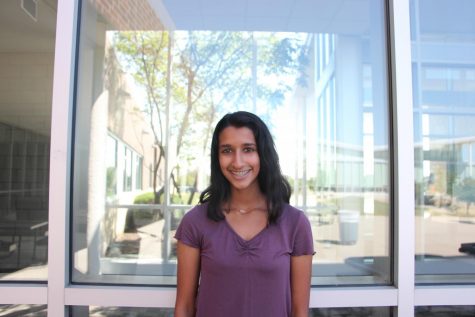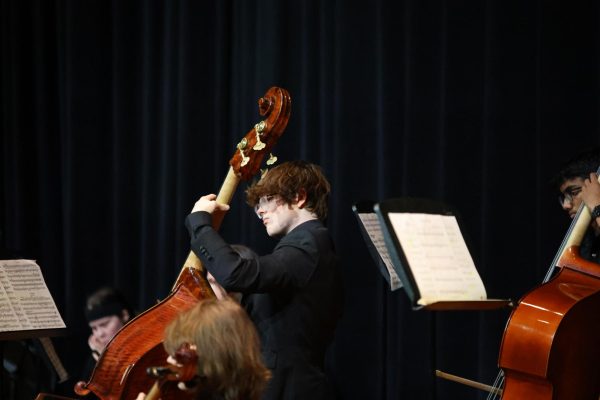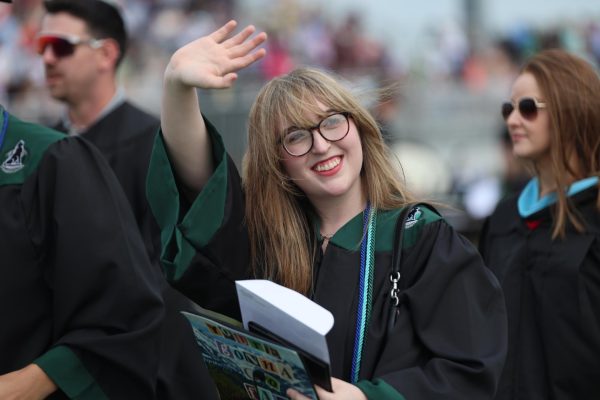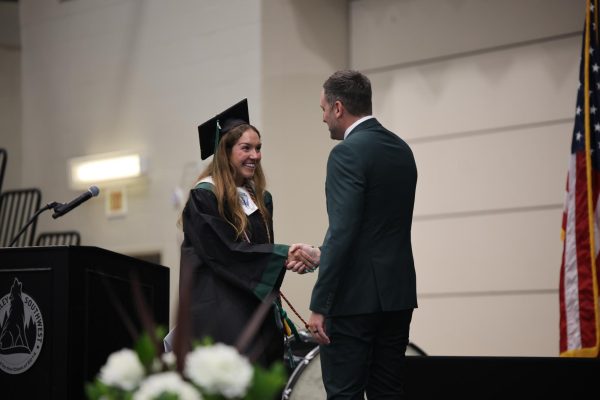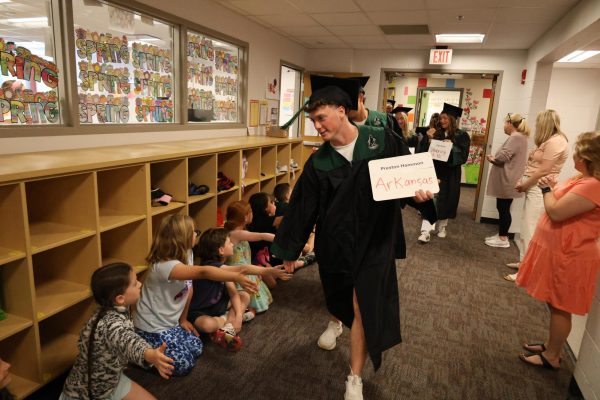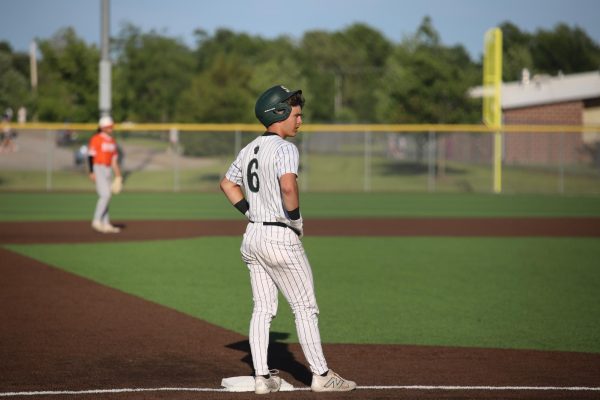Two Worlds Collide: Immigrants and first-generation Americans shed light on their experiences and living in the United States
The definition of being American encompasses a diverse population and the colorful blend of cultures the country is built upon. People immigrate to the United States for a wide variety of reasons and begin a new chapter of their lives. Spanish teacher Alejandra Alana said she first arrived in Ohio when she was around 27 years old, with the intent of completing her higher education.
“I had graduated from college and had some work experience, but I decided I wanted to go back to school to get my Master’s and I got accepted into a program at Miami University of Ohio,” Alana said. “I was supposed to [return home] after three years but that is exactly when the whole political situation in Venezuela erupted, and I decided it would be best for me if I stayed. I didn’t think there would be a future for me in Venezuela if things continued to go south like they did, so I stayed ever since.”
A portion of the population identifies as first-generation American because they were born after their parents immigrated to the United States. Many first-generation Americans grow up embracing their parents’ customs and ideals, as well as adapting to the American lifestyle.
Senior Sean Khan said his household functions differently from others’ because his parents come from different backgrounds, influencing their parenting styles and values.
“My father immigrated from India and my mother, Pakistan,” Khan said. “Of course my parents are bringing with them their culture and traditional teachings. Our family dynamic is much less Americanized in the sense that there is a difference between the two cultures and it is more like integrating cultures than just having one existing.”
Senior Sarah Lee said she had to discover and adopt aspects of American culture on her own as a result of being a first-generation American.
“My dad immigrated from Malaysia and my mom immigrated from Taiwan,” Lee said. “Obviously, my parents haven’t lived in America for their whole lives, so in terms of culture, I’ve just had to pick up on stuff myself instead of being raised that way and having my parents teach me.”
First-generation Americans are often linked both with their parents’ native countries, as well as the United States, creating a sense of confusion. Lee said she has struggled to be comfortable in her own skin and come to terms with her cultural identity.
“Both my sisters grew up speaking Chinese as their first language, but by the time I was born, we had been living in America for a while so I was raised speaking English,” Lee said. “I feel a little bit disconnected in both aspects in that I am not completely connected with my Asian culture but I’m really not American either.”
Sophomore Kanika Radadiya said both her parents came to the United States from India and despite preserving a strong connection with her heritage, she still questions how to behave depending on the social environment she is in.
“Being Indian comes first, so sometimes it’s kind of like, do I act a certain way to fit in here or do I act another way?” Radadiya said. “It’s a seesaw type of situation a lot of the time. There are certain struggles of trying to fit into the culture and also see my points of view as well as my parents’ views.”
However, cultural identity is highly impacted by how people are raised and what beliefs they personally hold and wish to carry forward with them. Khan said he solely identifies with being an American because it is all he has ever known.
“I am 100% American even if my cultural heritage is of a different country,” Khan said. “I was born and raised here and I learned everything about here. I can obviously see the problems that originate from my roots and the countries there, but they have no bearing on how I’m living today or what I’m going to be doing because I am in America.“
Lee said visiting Taiwan and Malaysia often has always been enjoyable, but comes with some challenges.
“It has been hard to communicate with my extended family just because of the language barrier since I’m not completely fluent in Chinese,” Lee said. “We don’t see them very often so I don’t know them very well.”
On the flip side, Alana said she feels completely at home when she visits Venezuela because she has a strong foundation there and lived there from birth throughout her young adulthood.
“The last time I was there, in 2015, it was just like usual: hanging out with friends, seeing family, and going to places I used to visit like my favorite coffee shop,” Alana said. “I didn’t notice anything relevant or worth remembering; it was just I’m going back home and seeing my friends and my family.”
First-generation Americans often face additional hurdles primarily because of their differences and the pressure to assimilate to American standards. Lee said she has been treated with indifference because of her race but feels thankful for not having to deal with as extreme situations as other individuals in the minority community.
“In school, the people I surround myself with are all very compassionate and loving and they have a lot of respect for everybody despite their differences. I am very grateful that being a first-generation American hasn’t stopped me from achieving what I want to do,” Lee said. “As far as specific experiences, mainly just microaggressions here and there where people make small remarks they think are funny, but it is really just racist. Usually, I just try not to be affected by ignorance.”
Radadiya said she started to face uncomfortable situations pertaining to her racial background when she first entered the district in sixth grade.
“Every time there was an Indian holiday, the teacher expected me to fill in or give information about it,” Radadiya said. “There are also those little funny moments because my name is a little different than normal, so sometimes during attendance, teachers just won’t say my name because they don’t want to attempt it.”
Family members play a prominent role in fostering a child’s connection with their heritage. Alana said she has made it a priority to preserve the Venezuelan culture in her household to raise her son with an attachment to his roots.
“My husband and I would like to pass on to our son as much as we can in terms of our culture which starts with only speaking Spanish at home so he can grow up to be bilingual,” Alana said. “We also plan to keep our customs and try to emulate life in Venezuela to the best of our abilities since traveling there will probably be restricted for the foreseeable future. We plan to cook dishes that we ate at home and also eat here quite frequently and celebrate holidays that are specific to Venezuela as we would back home.”
Lee said she has gained a unique outlook on life as a result of being a first-generation American and her exposure to all types of people and lifestyles.
“Being a first-generation American has allowed me to really appreciate the hard work my parents have put into providing for me and everything they went through when moving here,” Lee said. “My cultural background has helped me be more open-minded and understanding of other immigrants who might be going through similar experiences and allowed me to advocate for celebrating our differences and building each other up.”



